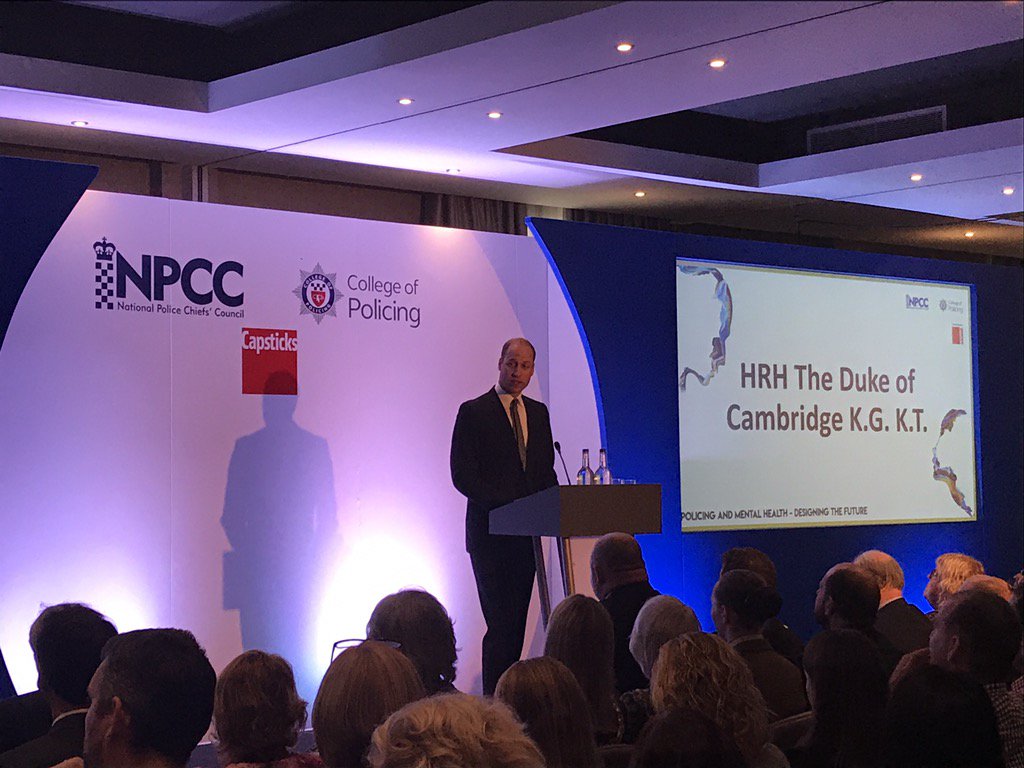Prince William: officers should be looked after
“You are skilled at helping people in extreme distress – so you should be looked after just as much.”
The Duke of Cambridge, Prince William, spoke on 5 September at the National Health and Wellbeing in Policing Conference.
With a 47% rise in the number of officers experiencing mental health illnesses in the last five years, and 9,267 officers taking time off for either stress, depression, anxiety or PTSD in the last year, the problem within forces is both apparent and growing.
The Prince addressed delegates with his own personal experiences of mental health, and how he would like the support that officers receive to improve.
He said: “Being a member of the emergency services takes considerable mental strength and resilience, and I believe there is more that we can and should do to support all first responders to look after their mental health.
“Members of the police service are twice as likely to suffer from mental health problems as the general public. The recent Police Federation survey also showed that officers fear disclosing mental health problems due to stigma, the reaction they would receive from supervisors and colleagues, and the possible impact on their careers. Two thirds of respondents had come to work, despite serious concerns about their mental well-being.
“This issue is by no means confined to the police force – the fear of stigma and a negative reaction is common in many workplaces.
“Over the past 18 months, through our Heads Together campaign, Catherine, Harry and I have been working with leading charities to change the conversation about mental health, and I’m really pleased MIND is here today.
“Our aim has been to help tackle the stigma surrounding the issue, and to make it easier for people to get help as soon as they need it, without worrying what others will think of them.
“We are beginning to see progress, with more people talking about mental health than ever before, but we still have a long way to go.
“There are a number of organisations able to provide immediate support on the phone or online, an in particular, the MIND Blue Light Infoline that offers specialist support for those serving in the emergency services. I am delighted that MIND’s Blue Light programme is represented here today. As you may know, it supports many police services across the country to provide simple and easy access to immediate support.
“Building on this work by MIND Blue Light, and the Heads Together campaign, I will be convening representatives of the emergency services to consider ways in which society might better support the work you do. The tragedy at Grenfell, and the conclusion of my work as an Air Ambulance pilot, spurred me to look into doing what I can to support you in a practical way.
“The reason I think all of this is important is that being a first responder is tough enough as it is. These pressures are not going to go away. Therefore, it is properly essential you are equipped to withstand the realities of 21st century policing. If more openness about mental wellbeing is part of the solution, as I believe it is, then I would like to help you with that.
“I sincerely hope that today marks an important milestone in improving the support that you get and so rightly deserve.”

